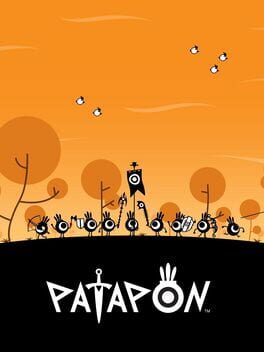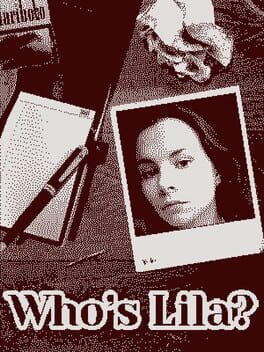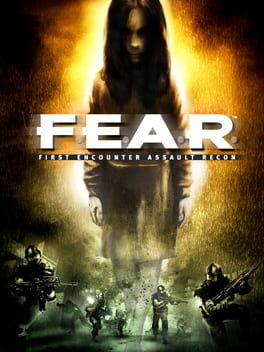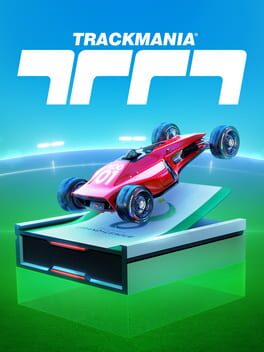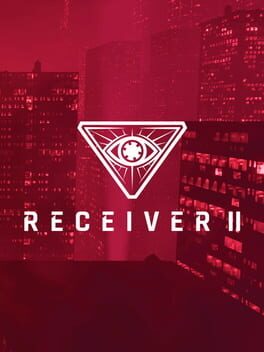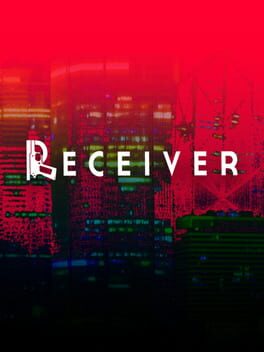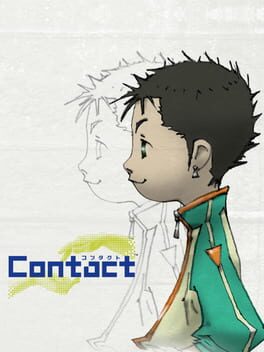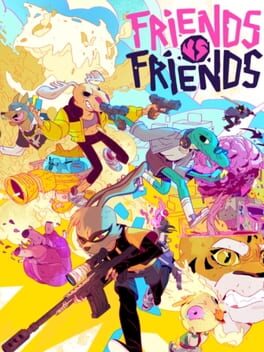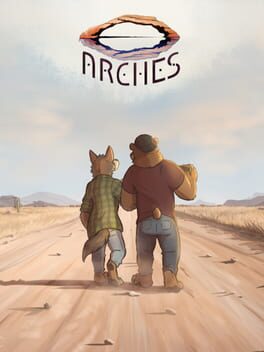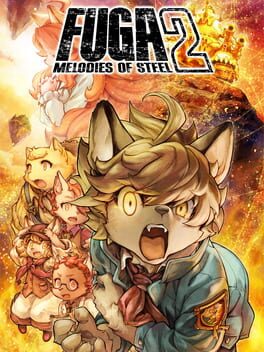SageMustDie
2007
Patapon is a franchise that I hold close to my chest. It's one big reason why I've ended up gravitating towards music and sound design as my primary hobby. The first game is a unique and innovative action game that still holds up quite well after nearly two decades since its launch on the PlayStation Portable.
Returning to it through the PlayStation 4 remaster after years and years of not having thought about the first game has been quite the experience. I found myself understanding and engaging with the deeper intricacies of Patapon's mechanics more than I did as a prepubescent kid who was about to enter the darkest point in their life. I knew when to move, when to attack and defend, what materials made which Rarepon and how to play each minigame with no mistakes made. Now I found myself actively moving each Patapon to different positions depending on their stats and equipment. I found which missions consistently provide the most amount of money (it's the first hunting mission btw) and ground for materials when needed. I found what units worked the best for me, optimized the hell out of them, and steamrolled the final boss on my first try when it gave me trouble all those years before.
Now I find myself thinking about this game in a more mature perspective. I'm one month away from turning 26 years old right now, and I've learned a lot about what I like in a video game and how I engage with them. With this experience in mind, I believe it's reasonable to say that Patapon is a game where you can find it fun the whole way through, or it'll quickly become a chore for you even if you do have the internal metronome needed to play effectively.
While the bones of Patapon are very strong and well developed, its biggest flaw is a lot of the busywork. This is something that the second game will make very apparent. Grinding is slow, but it's also very automated. The minigames never change, most of the hunting missions are not optimal for material/money grinding, the pool of equipment is quite limited, and if you're aiming to create the high-level Rarepons, you're going to be trudging through a lot of repeat missions just to get the absurd amount of needed Ka-ching. When it pays off, hell yeah, it pays off! But the journey is not for everyone.
I'm not everyone. I'm a weird recluse with mental illnesses and a love for repetition. Patapon scratches a nice itch for me, though it is one that made me pine for the days of endgame Patapon 2 towards the end.
Returning to it through the PlayStation 4 remaster after years and years of not having thought about the first game has been quite the experience. I found myself understanding and engaging with the deeper intricacies of Patapon's mechanics more than I did as a prepubescent kid who was about to enter the darkest point in their life. I knew when to move, when to attack and defend, what materials made which Rarepon and how to play each minigame with no mistakes made. Now I found myself actively moving each Patapon to different positions depending on their stats and equipment. I found which missions consistently provide the most amount of money (it's the first hunting mission btw) and ground for materials when needed. I found what units worked the best for me, optimized the hell out of them, and steamrolled the final boss on my first try when it gave me trouble all those years before.
Now I find myself thinking about this game in a more mature perspective. I'm one month away from turning 26 years old right now, and I've learned a lot about what I like in a video game and how I engage with them. With this experience in mind, I believe it's reasonable to say that Patapon is a game where you can find it fun the whole way through, or it'll quickly become a chore for you even if you do have the internal metronome needed to play effectively.
While the bones of Patapon are very strong and well developed, its biggest flaw is a lot of the busywork. This is something that the second game will make very apparent. Grinding is slow, but it's also very automated. The minigames never change, most of the hunting missions are not optimal for material/money grinding, the pool of equipment is quite limited, and if you're aiming to create the high-level Rarepons, you're going to be trudging through a lot of repeat missions just to get the absurd amount of needed Ka-ching. When it pays off, hell yeah, it pays off! But the journey is not for everyone.
I'm not everyone. I'm a weird recluse with mental illnesses and a love for repetition. Patapon scratches a nice itch for me, though it is one that made me pine for the days of endgame Patapon 2 towards the end.
2024
It's fine! It's okay. Far from the worst thing to come from the Silent Hill brand and, ultimately, a step in the right direction I think.
I'm pretty tired of the Outlast-style "run away from the monster(s)" style of survival horror gameplay as a whole and this doesn't exactly reinvent that particular wheel. The narrative is pretty undercooked and ends on a very unfulfilling note. Also, framerate drops and lipsync issues!
However, I do appreciate the attempt to tackle the themes of teen suicide, bullying, child abuse and isolation. It's handled a hell of a lot better than some contemporary works, even if it is very hamfisted and unsubtle. The fact that it has a good and comprehensive trigger warning (that it will show you often, for some reason) puts it above other games.
Also: This game looks great! It captures the look of a shitty fuckin' condemned apartment complex really well; it's got the perfect amount of dirt and broken glass and clutter. Characters are designed with intent, the monster design is genuinely pretty neato, and the graffiti all over the walls actually looks so good and authentic.
Akira Yamaoka's music goes hard as well but let's be honest, that's not a surprise.
Game fine, not bad, but not great. Not gonna play it again, but not complaining over its existence. The fact that it's a free 2-to-3 hour long game really softens the blow. If I had to charge money for this, I'd be a lot more sour.
I'm pretty tired of the Outlast-style "run away from the monster(s)" style of survival horror gameplay as a whole and this doesn't exactly reinvent that particular wheel. The narrative is pretty undercooked and ends on a very unfulfilling note. Also, framerate drops and lipsync issues!
However, I do appreciate the attempt to tackle the themes of teen suicide, bullying, child abuse and isolation. It's handled a hell of a lot better than some contemporary works, even if it is very hamfisted and unsubtle. The fact that it has a good and comprehensive trigger warning (that it will show you often, for some reason) puts it above other games.
Also: This game looks great! It captures the look of a shitty fuckin' condemned apartment complex really well; it's got the perfect amount of dirt and broken glass and clutter. Characters are designed with intent, the monster design is genuinely pretty neato, and the graffiti all over the walls actually looks so good and authentic.
Akira Yamaoka's music goes hard as well but let's be honest, that's not a surprise.
Game fine, not bad, but not great. Not gonna play it again, but not complaining over its existence. The fact that it's a free 2-to-3 hour long game really softens the blow. If I had to charge money for this, I'd be a lot more sour.
2022
A truly mind-bending and esoteric piece of media that could be dissected and studied for days and weeks on end. It's a puzzle box within a puzzle box—something that can be solved, but something without a solution. But I think trying to "solve the mystery" isn't the point.
The point of "Who's Lila" is lying in plain sight.
The point of "Who's Lila" is lying in plain sight.
2005
2023
2020
2020
I hadn't expected Receiver of all things to get a sequel, but honestly, I'm glad it did. Everything from the first game was polished, iterated and expanded upon to where I'd argue it's reached full potential.
As a firearm simulator, it's deeply engaging to learn how every gun operates and commit its intricacies to muscle memory. As a stealth game, it's unbelievably tense and immersive, but I'm also extremely jumpy by nature so your mileage may vary.
As a narrative about mental illness and mindfulness, I understand it's quite divisive. I've been diagnosed with clinical depression and autism for almost 20 years, with signs that I might also have ADHD. I've struggled and suffered and continue to do so. How Receiver 2 handles this topic, how it uses its narrative and gameplay to explicitly and implicitly talk about mental illness was very poignant to me for reasons I could talk on and on and on about for an hour or two. Rather than spend half an hour writing an absurd wall of text, I'll simply put it like this: For a game about guns, Receiver 2 is deeply empathetic and encourages coping mechanisms, safety, and social awareness in ways not a lot of media dealing with these topics does.
I'm gonna be thinking about and revisiting Receiver 2 for a while.
As a firearm simulator, it's deeply engaging to learn how every gun operates and commit its intricacies to muscle memory. As a stealth game, it's unbelievably tense and immersive, but I'm also extremely jumpy by nature so your mileage may vary.
As a narrative about mental illness and mindfulness, I understand it's quite divisive. I've been diagnosed with clinical depression and autism for almost 20 years, with signs that I might also have ADHD. I've struggled and suffered and continue to do so. How Receiver 2 handles this topic, how it uses its narrative and gameplay to explicitly and implicitly talk about mental illness was very poignant to me for reasons I could talk on and on and on about for an hour or two. Rather than spend half an hour writing an absurd wall of text, I'll simply put it like this: For a game about guns, Receiver 2 is deeply empathetic and encourages coping mechanisms, safety, and social awareness in ways not a lot of media dealing with these topics does.
I'm gonna be thinking about and revisiting Receiver 2 for a while.
2013
I've had this game for the longest time, probably since 2013, but I've never ended up completing it until now.
It's a solid game jam piece; I've always thought handguns and revolvers are cool, so a game that centers around operating weapons like those in semi-realistic detail was quite novel to me.
Receiver isn't the deepest of games, but for what it is, it's well constructed and presented, plus the firearm mechanics are easy to commit to muscle memory. It does suffer from being a bit shallow and jank, but it was made for a 7-day game jam, I can forgive it. Besides, everything was improved upon for the sequel.
It's a solid game jam piece; I've always thought handguns and revolvers are cool, so a game that centers around operating weapons like those in semi-realistic detail was quite novel to me.
Receiver isn't the deepest of games, but for what it is, it's well constructed and presented, plus the firearm mechanics are easy to commit to muscle memory. It does suffer from being a bit shallow and jank, but it was made for a 7-day game jam, I can forgive it. Besides, everything was improved upon for the sequel.
2006
Ambitious and ultimately flawed, but I still enjoyed playing Contact.
It's certainly one of the most engaging meta-narrative games I've played since IMSCARED, but it also doesn't quite feel like it achieves everything it wants to do with its bridging the gap between Terry, the Professor, and you/me. Very brave and even thought-provoking, but perhaps just a biiiiit surface level?
The gameplay is easily the most divisive part of the game and for good reason. In some aspects, it feels undercooked. A lot of it is tedious and unengaging by design; it doesn't make for a good-feeling game, but it at least has a reason being the way it is. Experience being divided up into over a dozen stats that level up on gameplay context is very cool, but level grinding is very slow and monotonous due in part to large XP gates and the passive combat.
Still, the charm of games like moon and Chulip do exist in Contact, albeit in a less overt way in favor of playing more like a typical RPG. Dialogue is cute, character designs and art style(s) are mostly pleasing to look at, and the environments are genuinely very well-composed for the DS.
I dunno, I think this is just a good, solid game, and I deeply appreciate its ambition. The ending even tugged at my heart just a bit.
It's certainly one of the most engaging meta-narrative games I've played since IMSCARED, but it also doesn't quite feel like it achieves everything it wants to do with its bridging the gap between Terry, the Professor, and you/me. Very brave and even thought-provoking, but perhaps just a biiiiit surface level?
The gameplay is easily the most divisive part of the game and for good reason. In some aspects, it feels undercooked. A lot of it is tedious and unengaging by design; it doesn't make for a good-feeling game, but it at least has a reason being the way it is. Experience being divided up into over a dozen stats that level up on gameplay context is very cool, but level grinding is very slow and monotonous due in part to large XP gates and the passive combat.
Still, the charm of games like moon and Chulip do exist in Contact, albeit in a less overt way in favor of playing more like a typical RPG. Dialogue is cute, character designs and art style(s) are mostly pleasing to look at, and the environments are genuinely very well-composed for the DS.
I dunno, I think this is just a good, solid game, and I deeply appreciate its ambition. The ending even tugged at my heart just a bit.
2023
The perfect competitive shooter for someone who doesn't like most competitive shooters like myself. The sheer chaos and light-hearted banter that Friends vs Friends is built upon makes it tough to get tilted when everything is just so colorful and fun. The fact that there's no micro transactions, no battle pass, and a simple and easy grind makes FvF feel very forgiving, and most importantly, welcoming.
The art direction is so genuinely refreshing and fun to look at, every character is distinct and memorable in design and personality, and the stages, despite only having 4 at release, are all unique and bring interesting gimmicks and strategies.
FvF feels like a Source Engine mod from the late aughts in how its simple mechanics give way to a ton of fun and mayhem. The cards and character abilities allow you to come up with interesting playstyles, though since it is a multiplayer game, there's bound to be cards, characters and decks that are far more favored than others.
At the time of writing, balance is definitely a bit unsteady. The shotgun weapon is notably very powerful, and some cards feel very underwhelming like the ice block or hiding enemy health bars.
Still, FvF is clearly in its early stages, and the small development team at Brainwash Gang is clearly very passionate, active, and most importantly, transparent and communicative with their community, so I have high hopes for this game's future. I'm having a ton of fun with it, and I'm looking forward to what comes next.
The art direction is so genuinely refreshing and fun to look at, every character is distinct and memorable in design and personality, and the stages, despite only having 4 at release, are all unique and bring interesting gimmicks and strategies.
FvF feels like a Source Engine mod from the late aughts in how its simple mechanics give way to a ton of fun and mayhem. The cards and character abilities allow you to come up with interesting playstyles, though since it is a multiplayer game, there's bound to be cards, characters and decks that are far more favored than others.
At the time of writing, balance is definitely a bit unsteady. The shotgun weapon is notably very powerful, and some cards feel very underwhelming like the ice block or hiding enemy health bars.
Still, FvF is clearly in its early stages, and the small development team at Brainwash Gang is clearly very passionate, active, and most importantly, transparent and communicative with their community, so I have high hopes for this game's future. I'm having a ton of fun with it, and I'm looking forward to what comes next.
2022
Signalis doesn't just wear its influences on its sleeve, the entire outfit is its influences. From gameplay mechanics, cutscene direction, story and character beats, and even outright references, this is a game that doesn't even try to hide what has come before. While this can occasionally be a bit too on the nose (particularly the Nier and Silent Hill references), Signalis uses its inspirations and allusions to craft an experience that feels realized and brimming with potential.
Technically and mechanically, this is a very refreshing horror game; it pulls direct parallels to the original Resident Evil trilogy with heavily limited inventory, safe rooms, and claustrophobic areas, but it iterates on those mechanics by introducing streamlined and modern controls. Fully analog movement (with togglable tank controls) and combat that focuses on crowd control and maintaining distance from your enemies via a pseudo lock-on system that lets you deal more damage the longer you focus your aim between shots. It feels like a dream to play, with my only gripe being that the lock-on can get pretty finicky with multiple enemies if you're playing on a gamepad.
My favorite part of Signalis, easily, is its presentation. The art and level direction is nothing short of marvelous. The anime art style is striking and compliments its totalitarian cyberpunk aesthetic: the Suda51-styled flashes of cryptic and deformed text between scenes of body horror and tense, somber reflection is precisely my kinda shit. Level design has been clearly thought out and combed over with care and detail for pacing and atmosphere, and the pieces of worldbuilding: the memos between exasperated workers, fearful diary entries and propaganda posters, it makes the world of Signalis feel so deeply authentic and believable.
It's not the ultimate modern survival horror game, but it does nearly everything it sets out to do very well. Signalis is an absolute must-play if you like the classic 5th and 6th gen era of survival horror.
Technically and mechanically, this is a very refreshing horror game; it pulls direct parallels to the original Resident Evil trilogy with heavily limited inventory, safe rooms, and claustrophobic areas, but it iterates on those mechanics by introducing streamlined and modern controls. Fully analog movement (with togglable tank controls) and combat that focuses on crowd control and maintaining distance from your enemies via a pseudo lock-on system that lets you deal more damage the longer you focus your aim between shots. It feels like a dream to play, with my only gripe being that the lock-on can get pretty finicky with multiple enemies if you're playing on a gamepad.
My favorite part of Signalis, easily, is its presentation. The art and level direction is nothing short of marvelous. The anime art style is striking and compliments its totalitarian cyberpunk aesthetic: the Suda51-styled flashes of cryptic and deformed text between scenes of body horror and tense, somber reflection is precisely my kinda shit. Level design has been clearly thought out and combed over with care and detail for pacing and atmosphere, and the pieces of worldbuilding: the memos between exasperated workers, fearful diary entries and propaganda posters, it makes the world of Signalis feel so deeply authentic and believable.
It's not the ultimate modern survival horror game, but it does nearly everything it sets out to do very well. Signalis is an absolute must-play if you like the classic 5th and 6th gen era of survival horror.
2021
Arches is a game about suffering. Deep, horrible trauma that sinks its claws into you and threatens to tear you at the seams. It expands on what Hell is for people. For Chase, it was Echo itself, and the tragedy that broke his already jagged friend group. For Sam, it was the betrayal of his trust, the seed he unwittingly and unwillingly planted in the mine.
For Cameron and Devon, two lovers visiting the almost-deserted town, Hell is being unable to let go of the past. Hell is change. Hell is drugs, a dead family member, a fear that one of them will leave the other.
Hell is a town named Echo, and it breaks people.
But you don't have to be another victim. If you fight, if you trust, if you hope that something can pull you out into the light... that's something to hold onto. God dammit, hold onto that hope like it's the last thing you can do, because it very well could be.
For Cameron and Devon, two lovers visiting the almost-deserted town, Hell is being unable to let go of the past. Hell is change. Hell is drugs, a dead family member, a fear that one of them will leave the other.
Hell is a town named Echo, and it breaks people.
But you don't have to be another victim. If you fight, if you trust, if you hope that something can pull you out into the light... that's something to hold onto. God dammit, hold onto that hope like it's the last thing you can do, because it very well could be.
Everything from the already stellar first game, polished to a mirror sheen and amplified to 11. I am absolutely biased considering my investment in the Little Tail Bronx universe, but Fuga 2 feels so truly realized and confident in itself that any minor nitpicks I have (which I do) are null and void because this game is just so goddamn good.
The core gameplay is sped up and refined, quality of life tweaks cutting down on the tedium from the first game, new mechanics deepen the strategic choices, and the story, while predictable, is told perfectly in both narrative and gameplay. Fuga 2 is a monument to ludonarrative harmony, and it should go down as one of the best games of 2023.
Please play the Fuga games. Support CyberConnect2. There really isn't a lot of companies out there doing it as good as they are.
The core gameplay is sped up and refined, quality of life tweaks cutting down on the tedium from the first game, new mechanics deepen the strategic choices, and the story, while predictable, is told perfectly in both narrative and gameplay. Fuga 2 is a monument to ludonarrative harmony, and it should go down as one of the best games of 2023.
Please play the Fuga games. Support CyberConnect2. There really isn't a lot of companies out there doing it as good as they are.
2023
